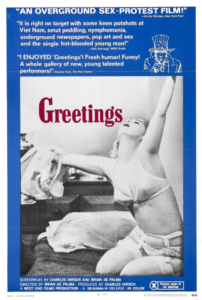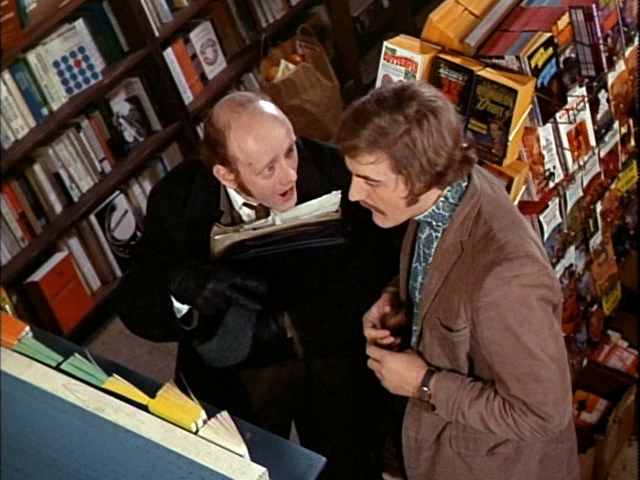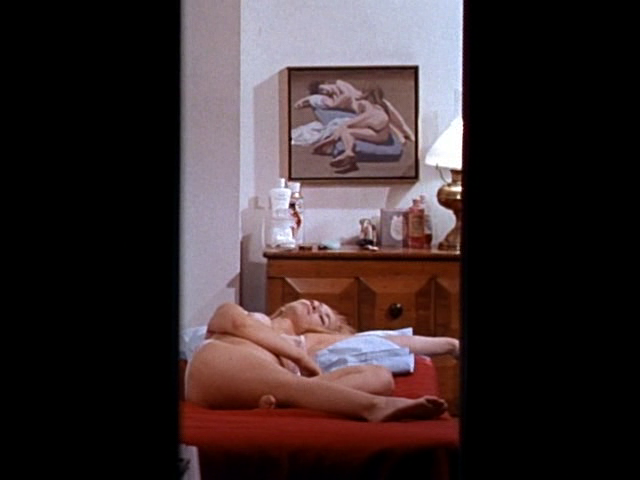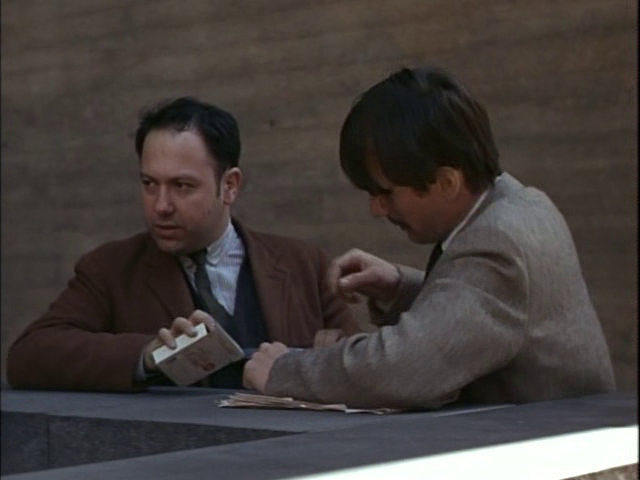Greetings (1968)
“Like cats, there are so many young people, wandering to and fro.”
|
Synopsis: |
|
Genres, Themes, Actors, and Directors:
Response to Peary’s Review: Peary elaborates upon all these points in his lengthier Cult Movies review, where he discusses the many cinematic influences on display. He writes that while “De Palma’s studio-backed pictures of the seventies and eighties invariably call attention to Alfred Hitchcock,” the “cinema-verite look to some of the scenes and the use of new footage and segments of Lyndon Johnson speeches… to counterpoint the disturbing images of ‘reality’ we see, suggest the influence of such diverse documentarians of the period as D.A. Pennebacker [Don’t Look Back, (1967)] and Emile D’Antonio [Point of Order, (1964); Millhouse: A White Comedy (1967)].” Meanwhile, as Graham “starts examining photos of the Kennedy assassination and considers enlarging some to see if he can discover another gunman in Dallas’s infamous grassy knoll, he becomes increasingly like the David Hemmings character in Michelangelo Antonioni’s Blow-Up (1966).” Finally, Peary points out De Palma’s obvious debt to Jean-Luc Godard, given that “the young characters who inhabit De Palma’s world could very well be acquaintances of Jean-Pierre Leaud and his compadres in Godard’s Masculin Feminine (1966) and La Chinoise (1967).” Peary goes on to write about how “Greetings is most interesting today as a testament of its times” (I agree). He notes that “not only does it reflect the political unrest and malaise of 1968 America — and the despair in Vietnam — but it… has a left-wing, anti-government/society/authority/status quo bias” and “is concerned with disillusioned young [white, heterosexual] males” (the genders, races, and sexual orientations of the protagonists would surely be more diverse if the film were made today) “who look for a direction in and meaning to life (another side to the previous year’s The Graduate.”) Indeed, much of this film should feel quite familiar in many ways to millenials, who are similarly skeptical of their government and seeking a point to their lives in the midst of rampant commercialism, greed, violence, racism, and (currently) a global pandemic. Even if technology has advanced, we remain — like the three characters here — obsessed with voyeurism, sex, and conspiracy; not that much has changed. Redeeming Qualities and Moments:
Must See? Links: |





One thought on “Greetings (1968)”
First viewing. Not must-see; only for De Palma completists.
Eccentric (sometimes annoying) little ‘comedy’ that isn’t funny. I had a hard time spotting any “cinematic brilliance”. I did notice that, at about 90 minutes, the film feels long.